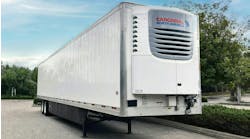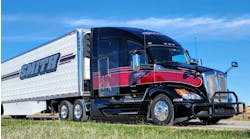The National Research Council and National Highway Traffic Safety Administration (NHTSA) have released Technologies and Approaches to Reducing the Fuel Consumption of Medium- and Heavy-Duty Vehicles. This congressionally mandated report assesses and recommends different approaches to (for) improving fuel economy, increasing efficiency, and reducing emission of greenhouse gases from medium- and heavy-duty trucks.
The report highlights the importance of alternative methods to reduce greenhouse gas emission from medium- and heavy-duty trucks. These include training vehicle operators in efficient driving methods, adjusting size and weight restrictions on trucks, developing intelligent vehicles, and improving the nation’s highway systems.
Examined are seven types of vehicle classes with different duty cycles that impact fuel consumption ranging from on-highway applications to urbanized operations such as refuse trucks and transit buses. When the US Department of Transportation “promulgates standards for fuel consumption, it will have to address the duty cycles that characterize different types of vehicles and their wide range of applications. Regulators should use a measure that accounts for the amount of freight or passengers carried by these vehicles,” the report said.
The report assessed the carbon reduction through an array of technologies that improve fuel efficiency. These include aerodynamics, tires and wheels, accessory electrification, idle reduction strategies, weight reduction, engine efficiency, waste heat recapture, hybridization, transmission, and driveline. The high cost of carbon-reducing technologies has inhibited their use. “Purchasers must weigh the additional cost against the fuel savings that will accrue, the report said.”
Visit www.nationalacademies.org/morenews/20100331b.html to view a copy of the report.


